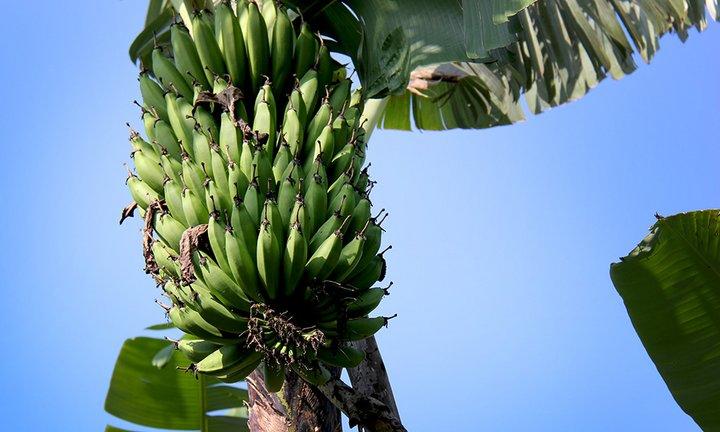Press and News New insights into banana genetics

New study by Bioversity International scientist Julie Sardos and colleagues, published in PLOS ONE, shows that genome-wide association studies are feasible in banana.
New study by Bioversity International scientist Julie Sardos and colleagues, published in PLOS ONE, shows that genome-wide association studies are feasible in banana.
Banana, one of the world’s most popular fruit, happens to have qualities that make it very difficult for breeders and researchers to improve – such as being for all practical purposes sterile.
For that reason, the latest findings by Bioversity International scientist Julie Sardos and colleagues are of particular importance as they show that Genome-Wide Association Studies (GWAS), which identify genes associated with a trait, are feasible in banana. This could help unravel the genomic basis of traits of interest and therefore speed up the improvement of this crop.
Scientists thought that the GWAS approach wouldn’t work in a vegetatively-propagated crop such as banana. Sardos and colleagues, using accessions from the global banana collection managed by Bioversity International and hosted by the Belgian university KU Leuven at the International Transit Centre, looked for genes associated with seedlessness in banana.
The results presented in PLOS ONE confirm the feasibility and potential of GWAS. The researchers are already making plans to explore the genetics of drought tolerance and disease resistance, traits that are important to banana farmers, and by extension to breeders.
Find out more about the study on the banana knowledge platform ProMusa
Read the paper in PLOS ONE
__________
Photo: Bananas in Busheny, Uganda. Credit: Bioversity International/N.Capozio
